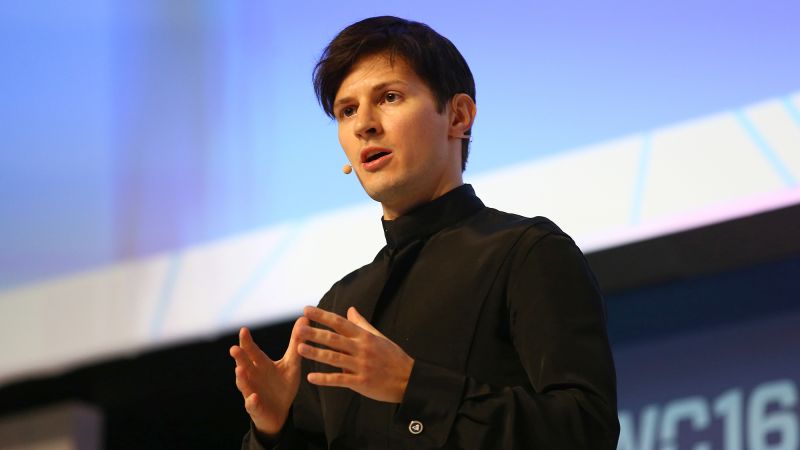Pavel Durov, CEO of messaging platform Telegram, was surprised to have been arrested in France less than two weeks ago as part of an investigation into criminal activity on the platform. He was released on bail of $5.56 million as the probe continues. Telegram, with 950 million users, is known for both everyday messaging and as a tool to circumvent authoritarian governments, but it has also been used by White supremacist groups and Isis. Authorities are also investigating Durov for alleged acts of violence against his child in Switzerland.
In a post on Telegram, Durov acknowledged that the platform’s rapid growth had made it easier for criminals to abuse it, and he pledged to improve security measures. He stated that the app’s primary purpose is to protect users in authoritarian regimes and emphasized their commitment to privacy by refusing to hand over encryption keys to Russia and refusing to block channels used by protesters in Iran. Durov also mentioned that Telegram is willing to leave markets that don’t align with their principles and values.
Durov criticized the French authorities’ decision to hold him personally liable for criminal activity on the platform, stating that it is more appropriate to take legal action against the service itself rather than targeting the CEO for the actions of third parties. He emphasized that charging a CEO with crimes committed by users on the platform is a misguided approach that ignores the technological advancements of the modern era. Durov stated that he is committed to sharing more details about the measures they are taking to improve security on Telegram in the near future.
The arrest and investigation of Pavel Durov have sparked debate about free speech and criminal activity online. While Telegram has been praised for its efforts to protect user privacy and security, it has also faced criticism for being used by extremist groups. Durov’s refusal to comply with demands from governments that compromise user privacy has led to bans in Russia and Iran. The situation highlights the complex challenges faced by tech companies in balancing freedom of speech with the need to prevent criminal activity on their platforms.
Overall, Pavel Durov’s recent arrest in France has brought attention to the role of messaging platforms like Telegram in facilitating communication and circumventing censorship in authoritarian regimes. The case also raises important questions about the responsibilities of tech companies in addressing criminal activity on their platforms and the legal implications for CEOs of such companies. Durov’s commitment to improving security on Telegram and his insistence on protecting user privacy in the face of government pressure underscore the ongoing struggle to balance security, privacy, and freedom of expression in the digital age.













